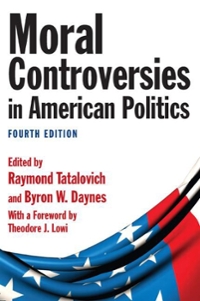Solve the following questions
1. This quration concerns surplus and the effect of taxes. Use the sue information as in Problem Set 46, and suppose N = 400. (a) Draw market demand and supply function on a single figure, and denote the equilibrium outcome. Label the areas that represent consumer surplus and producer surplus (b) Calculate the value of consumer surplus and producer surplus in this case. (c) Recall that producer surplus represents the sum of profits and fixed costs across all firms. Does your answer to (b] align with the implications of 2(e) from Problem Set #6? (d) Suppose a unit tax of : = 0.2 is imposed on each piece of output sold, so that consumers pay p+ # when the price is p. What is the new market demand function? (e) Solve for the new equilibrium outcome after the tax is imposed. (f) On a new figure, draw the old and new demand functions and the supply function, and denote the old and new equilibrium outcomes. Carefully label the areas that represent consumer and producer surplus, tax revenue, and deadweight loss imposed by the tax. (g) Calculate consumer surplus, producer surplus, tax revenue collected, and the deadweight loss after the tax is imposed. As a check on your work, the sum of these four values should equal market surplus before the tax is Imposed. (h) On the figure you drew in (d), carefully draw a line segment separating the portion of the tax effectively paid (or borne) by consumers vs producers, then calculate these values. Who pays more of the tax? Carefully explain why 2. This question concerns the market outcome when there is an unregulated monopolist pro- ducer. The firm can produce output y according to cost function Cly) = by" +2. Consumers in the market demand a total of D(p) = 4 - p units when the price is p. (a) If the firm sells y units at a price of p. how much revenue will it generate? (b) The price at which the monopolist can sell a quantity of output y is determined by the price at which consumers are willing to buy that quantity. This is the "inverse demand eQUESTION S ") "Since debt capital is cheaper than equity, companies should resort to one hundred percent use of debt to finance the investment" Discuss the limitations of the above financial policy QUESTION 6 a) What are the differences between an "operating lease" and a "finance lease" QUESTION 7 (a) Discuss the main factors which a company should consider when determining the appropriate mix of long-term and short-term debt in its capital structure. (b ). Malindi Leisure Industries is already highly geared by industry standards, but wishes to raise external capital to finance the development of a new beach resort. Outline the arguments for and against a rights issue by Malindi Leisure Industries. (c) Examine the relative merits of leasing versus hire purchase as a means of acquiring capital assets. QUESTION 8 (a) List and explain five factors that should be taken into account by a businessman in making the choice between financing by short-term and long-term source (b) Enumerate four advantages of convertible bonds from the point of view of the borrower. If you want your dreams to become true don't over-sleep. Unknown.MARKETS ") Distinguish between the terms "cum div" and "ex - div" as used in financial markets QUESTION 10 JUNE 2009 QUESTION ONE. ) Explain the main factors behind the rapid development of capital markets in your country QUESTION 11 a) DECEMBER 2006 QUESTIONS Discuss the role of a capital markets authority in the development of a country's financial my QUESTION 12 SIX a) Describe the benefits to a country of integrating its financial markets with those of other country QUESTION 13 a) Distinguish between primary and secondary securities market. b) "Despite the large investment in the stock exchange and the various government incentives, only few companies are listed at the stock exchange of the three East Africa Countries" . This was the opening remark by the guest speaker in a seminar whose theme was "Developing our capital market." Required: i) The advantage of being listed at the stock exchange. ii) Highlight four factors that may hinder companies from being listed at the stock exchange. QUESTION 14 a) Briefly explain how the "Dow theory " views the movement of the market prices of shares traded on a stock exchange b) Identify and briefly explain the factors that must be taken into account in the design and construction of a market index for shares c) Joseph Kimeu is trying to determine the value of Bidii Ltd's ordinary shares. The earnings growth rate over his planned six-year holding period is estimated to be 10% and the dividend payout ration in 60%. The ending price earnings (P/E) ration is expected to be 20 and the current earning per share are Sh. 4. The required rate of return for this share is 15%. Required Compute the market price of Bidii Ltd's ordinary share QUESTION 15 a) Briefly describe the three forms of capital markets efficiency, b) Highlight four factors that may underlie the low rate of listing of companies in a stock exchange you are familiar with. QUESTION 16 (a) Highlight four advantages and disadvantages to a company of being listed on a stock exchange (b) In relation to the stock exchange" Section 3 F.M









